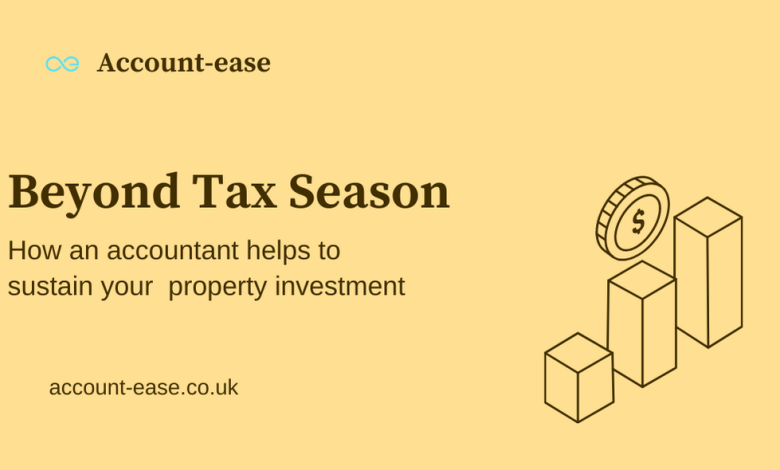
Investing in real estate is a significant undertaking, requiring careful financial management and strategic planning. As a property investor or landlord, you’re well aware of the complexities and challenges that come with maintaining and growing your investments. While the tax season might be a focal point for many, there’s a pivotal player that can contribute to the sustained success of your property ventures – a landlord accountant.
In this article, we delve into the indispensable role of a proficient landlord accountant in navigating the intricate world of real estate finance. Beyond tax-related matters, these experts offer a range of financial services tailored to property investors and landlords. From optimizing tax strategies to providing comprehensive financial insights, a landlord accountant can be the key to not only surviving but thriving in the dynamic realm of real estate investment. Let’s explore how their expertise goes beyond numbers and tax forms, becoming an invaluable partner in the journey towards sustaining and enhancing your property investments.
The Role of a Landlord Accountant
A landlord accountant is a financial professional specializing in real estate accounting. They offer tailored financial services that address the unique needs of property investors and landlords. Their responsibilities go beyond preparing tax returns; they provide comprehensive financial insights to optimize your investment strategies.
Managing Rental Income and Expenses
One of the key aspects a landlord accountant assists with is managing your rental income and expenses. They meticulously track all income sources, such as rent payments, security deposits, and ancillary fees. Simultaneously, they keep a detailed record of your property-related expenses, including maintenance, repairs, property management fees, and insurance costs.
Tax Planning and Optimization
While tax season might be the most apparent time to engage with an accountant, their expertise shines throughout the year. They proactively strategize to optimize your tax liability, identifying deductions and credits specific to real estate investments. This approach helps you minimize your tax burden and maximize your returns.
Financial Analysis and Reporting
A proficient landlord accountant offers in-depth financial analysis and reporting. They generate comprehensive reports that provide insights into your property’s financial performance. By understanding your property’s revenue, expenses, and overall profitability, you can make informed decisions about your investment portfolio.
Legal and Regulatory Compliance
Real estate investments come with a plethora of legal and regulatory requirements. A landlord accountant ensures that your investments adhere to these regulations. They can help you understand the implications of property-related laws, such as tenancy rules, zoning ordinances, and tax regulations.
Long-Term Investment Strategy
Beyond the day-to-day financial management, a landlord accountant collaborates with you to develop a long-term investment strategy. They factor in your goals, risk tolerance, and market trends to create a plan that aligns with your aspirations.
Monitoring Market Trends
The real estate market is dynamic, and staying updated with market trends is essential. A skilled accountant keeps a pulse on market shifts, interest rate changes, and economic indicators. This information empowers you to adjust your investment strategy as needed.
Partnership with Other Professionals
Landlord accountants often work in conjunction with other professionals like real estate agents, property managers, and attorneys. This collaborative approach ensures that all facets of your investment are aligned and optimized for success.
Addressing Complex Financial Situations
Real estate investments can present complex financial situations. Whether it’s a 1031 exchange, property acquisition, or restructuring of your portfolio, a landlord accountant offers expert guidance to navigate these scenarios seamlessly.
Maximizing Return on Investment (ROI)
Ultimately, the goal of a landlord accountant is to help you maximize your ROI. By streamlining financial processes, optimizing tax strategies, and offering insightful advice, they contribute significantly to the profitability and sustainability of your property investments. Maximizing Return on Investment (ROI) is the ultimate goal for any property investor. A skilled landlord accountant plays a pivotal role in achieving this objective. By employing strategic financial analysis, optimizing tax strategies, and offering valuable insights, they ensure that every financial decision aligns with enhancing profitability. Their expertise extends beyond balancing the books – it’s about identifying opportunities, mitigating risks, and making informed choices that propel your property investments to their full potential. With a focus on ROI, a landlord accountant becomes a catalyst for long-term success, guiding you through the intricacies of real estate finance to ensure your investments yield the greatest possible returns.
Conclusion
In conclusion, a landlord accountant is not just a professional you engage with during tax season; they are a vital partner in sustaining your property investments’ success. Their expertise goes beyond numbers, as they become your strategic ally in navigating the intricate landscape of real estate finance. From optimizing taxes to long-term investment planning, their role is integral to ensuring your investments flourish.
At Account ease, we understand the importance of expert financial guidance in the realm of property investments. Our team of experienced landlord accountants is dedicated to helping you navigate the complexities of real estate finance. With a focus on personalized strategies and impeccable attention to detail, we are committed to maximizing your returns and sustaining your property investments over time. Don’t miss out on the opportunity to take your property investments to the next level. Contact Account ease today.
FAQs
Q1: How do landlord accountants optimize tax strategies?
A1: Landlord accountants leverage their knowledge of real estate tax laws to identify deductions, credits, and strategies that minimize your tax liability.
Q2: Can a landlord accountant help with property acquisitions?
A2: Yes, a skilled landlord accountant can provide financial insights and analysis for property acquisitions, helping you make informed decisions.
Q3: Is a landlord accountant only beneficial for large property portfolios?
A3: No, even landlords with a single property can benefit from a landlord accountant’s expertise in maximizing profitability and compliance.
Q4: How do landlord accountants stay updated with market trends?
A4: They stay connected with industry publications, attend seminars, and engage with real estate networks to remain informed about market shifts.
Q5: How can I get started with a landlord accountant?
A5: You can find reputable landlord accountants through referrals from other investors, online searches, or professional associations.




